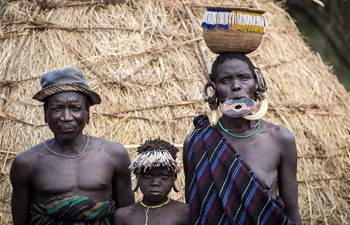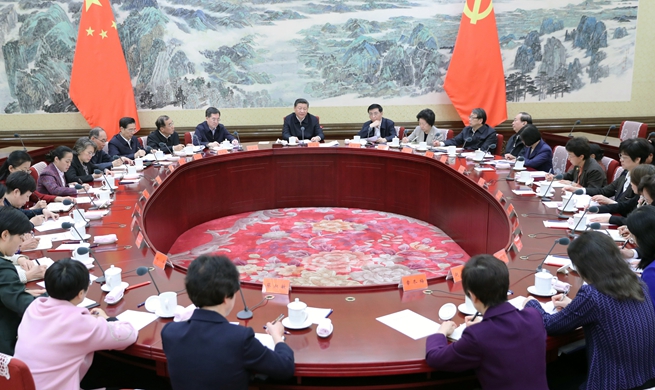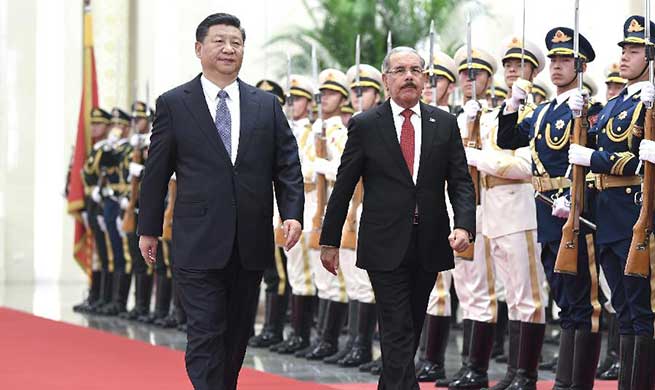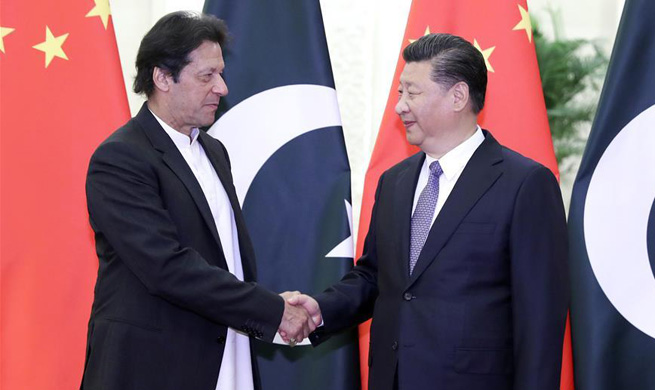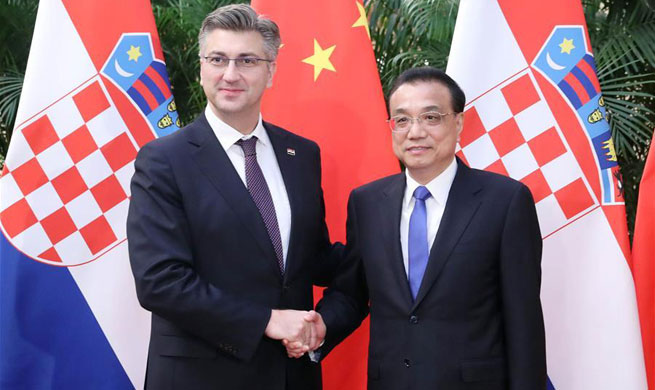CHANGSHA, Nov. 3 (Xinhua) -- The World Food Programme (WFP) will "collaborate [with China] to take advantage of Chinese experience and expertise, and then model that in the countries that need help," said David Beasley, head of the food aid arm of the United Nations.
"I think we need to get beyond the rhetoric and get very practical like China did," Beasley said in an interview with Xinhua Thursday in Changsha, capita central China's Hunan Province.
Beasley was appointed the executive director of the WFP, the leading humanitarian agency addressing global hunger and promoting food security, in April 2017. He was at his third trip to China this time in his current capacity as the head of the UN agency. "China has proven that they are not talkers. They are doers and get it done."
Beasley was in Changsha to attend the Ministerial Forum on Global South-South Cooperation in Agriculture Friday.
During China's reform and opening-up in the past 40 years, the country has helped more than 700 million people escape absolute poverty. "It's astonishing what China has done," Beasley said. "There is not a nation on the face of the planet that has done that before."
"The numbers speak for themselves. It is clear and convincing," Beasley said, adding that this "remarkable success" gives credit to the Chinese government and people.
"The Chinese leadership know exactly who they are, where they are, and what they are going to do," Beasley said. "Their goal of no absolute poverty by 2020 will be achieved."
According to UN reports, the number of people facing hunger worldwide is increasing. Beasley said that South-South cooperation is going to be critical for tackling this issue, and that China's expertise and success are highly relevant to the world.
From a beneficiary to a donor of WFP, China has been helping regions suffering from poverty and hunger in recent years with aid including technology and advice.
WFP established a Center of Excellence in China in 2016 to enhance South-South and triangular cooperation, and share China's rich experience in food security, nutrition improvement and poverty alleviation with other developing countries.
Since 2016, WFP China has successfully organized 13 South-South cooperation activities on policy dialogue, capacity building, and technical exchange for over 200 participants from more than 20 countries.
"Because we believe that China is one of the world's greatest opportunities to learn from," Beasley said.
"Techniques have been a driving force of Chinese experiential management and approach," he said, while speaking highly of agriculture technologies and e-commerce practices in rural China.
"We will work with China to utilize these technologies to help smallholder farmers in other developing countries make a better planting plan and connect the farmers to the market," Beasley said.
WFP also partners with China to provide nutritious lunches to more than 1,500 preschool children in two poverty-stricken counties in Hunan. "If this project is as successful as we believe it will be, then we can help China to decide when, where and how to scale it up," he said. "With all that wealth and all the experience and expertise, not a single child in the world should be left behind, not one."
"Taking advantage of China's experience and success is not what we are talking about for the future, we are talking about the present," Beasley said. "We are building the teams necessary to take it forward."





